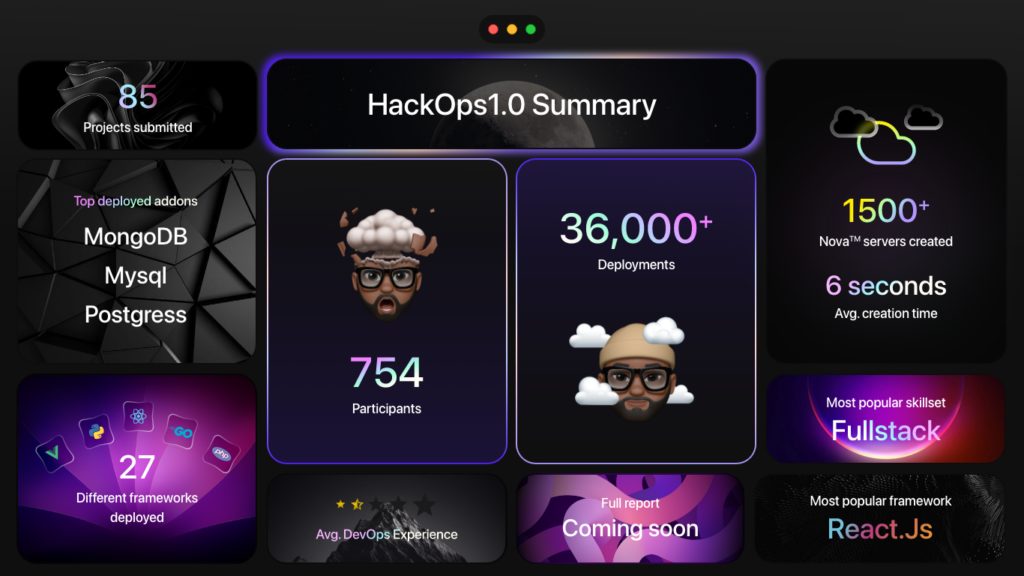In today’s world, companies turn to cloud service providers like Amazon Web Services to host their applications. To keep your app launches smooth and efficient, you need some DevOps experience or a DevOps engineer on your team. However, software development and operations teams are sometimes separated with few people having DevOps expertise. This creates problems during app launches that cost companies time, money, and customers who leave because they are displeased with the services. Additionally, cloud infrastructure providers often charge in dollars. This creates a payment hurdle for businesses and individuals and it becomes even more of a problem with currency fluctuations.
According to Samuel Ogbonyomi co-founder of PipeOps, the dearth of DevOps expertise and local cloud service providers is what led him and his co-founders Taye Joseph and Alex Idowu to create PipeOps. While working at a startup his team struggled with deploying to AWS because they lacked the right expertise, “During this period, we were plagued with downtime, lost users, and of course thousands of dollars in revenue. 95% of tech-enabled businesses struggle with cloud deployment because only 8% of global tech workers actually have the skillset to help them.”
PipeOps is a DevOps-as-a-service solution to solve the problems of expertise in cloud deployment.
Why PipeOps?
PipeOps is a robust, user-friendly platform that allows developers of all skill levels to deploy their projects to the cloud seamlessly. The team at PipeOps has built modern infrastructure that enables startups and devs across the world to bypass the barrier of DevOps expertise when deploying applications on the cloud. One big selling point of the platform is that it accepts naira payments making it more accessible to local developers and cloud providers. Another key selling point is its PipeOps Nova infrastructure.
PipeOps Nova is PipeOps’s solution to affordable and efficient cloud hosting for software developers and startups. Nova enables developers to create production-ready servers on the cloud powered by providers like AWS and Digital Ocean in just six seconds. It’s an excellent alternative for builders who are not able to afford cloud providers like AWS, GCP, Azure, etc directly. They can get started with PipeOps Nova and effortlessly migrate to other cloud providers (local and international) as their needs evolve. This is a service they can conveniently subscribe to with Naira.
Also with PipeOps Nova, users can connect to cloud providers where their servers are hosted. PipeOps currently supports AWS. Users can connect their AWS accounts and create servers through PipeOps. Using this service takes away the need to understand the complexities of AWS or have an expert managing your account.
Call-out to local cloud providers
Local cloud providers can also leverage this service to expose their infrastructure to developer and startup communities. Users can connect to these local cloud providers via PipeOps and easily access the provider’s resources without having DevOps expertise.
PipeOps is calling out to local cloud providers to partner with them; “I believe these partnerships will greatly drive the growth of our local ecosystem, providing affordable and accessible cloud infrastructure for businesses and developers. These partnerships will allow deployment to local infrastructures without DevOps experience and access to PipeOps features like CI/CD and other post-deployment activities. It’ll also relieve the stress of onboarding new users to their platform.” Samuel says.
A public demonstration of the PipeOps solution
PipeOps recently went on a journey to prove the simplicity, accessibility, and viability of its product. The company called for interested builders with technical (Software developers and engineers) and non-technical (Designers, product managers, technical writers, etc.) skills to participate in its HackOps 1.0 hackathon and build solutions to tackle real-world challenges.
The hackathon began virtually and took place over six days. The success of this first hackathon showcased the talent and potential of African developers. It also demonstrated PipeOps’ potential to empower developers with limited DevOps experience. According to a report from PipeOps, over 700 developers participated in this hackathon with participants reporting little to no previous DevOps experience. Over 80 projects were built for this hackathon with 27 different technologies being used. HTML and ReactJS were the most popular frontend technologies, while Python was the most popular backend technology. Thirty-six thousand deployments were also made in the course of this hackathon, showcasing the rapid development cycles facilitated by PipeOps.

Speaking on this Hackathon, Samuel said, “The success of our recently completed hackathon has significantly elevated PipeOps’ visibility and brand recognition within the tech and startup communities. It has enabled us to build a vibrant community, fostering direct engagement with developers. This interaction has provided invaluable feedback, guiding future development and improvements to better meet our users’ needs. Additionally, the hackathon served as confirmation that PipeOps is not only functional but equally versatile as participants with practically no DevOps/Cloud experience were able to effortlessly deploy up to 27 different frameworks to the Cloud.”
The road ahead
Cloud computing has revolutionised the tech industry, yet it remains complex and challenging for many. PipeOps wants to change this by making the cloud accessible to everyone.
“PipeOps is set to transform the tech landscape by becoming the definitive DevOps/Cloud Operating System, offering an extensive suite of solutions that make the cloud accessible to everyone—developers, startups, and enterprises—regardless of their technical expertise. Also, the world is fast moving to a future where all software development workflows are assisted with AI. Naturally, this future is incomplete without AI-assisted deployment—PipeOps will make it such that anyone can deploy to the cloud with the click of a button; it’ll be like magic!” Samuel states.
For developers comfortable with established cloud providers like AWS, PipeOps acts as a valuable tool. It streamlines project deployment, allowing developers to focus on what they’re good at. For those who are new to cloud deployment, PipeOps serves as a springboard, providing a server and a user-friendly interface that eliminates the need for DevOps knowledge.










